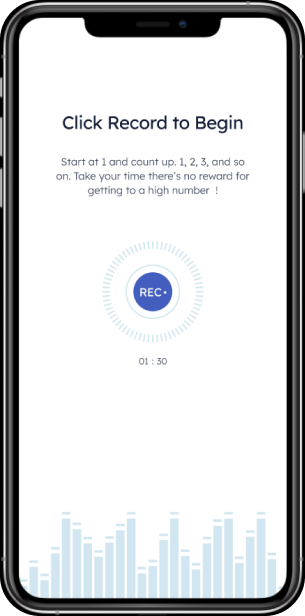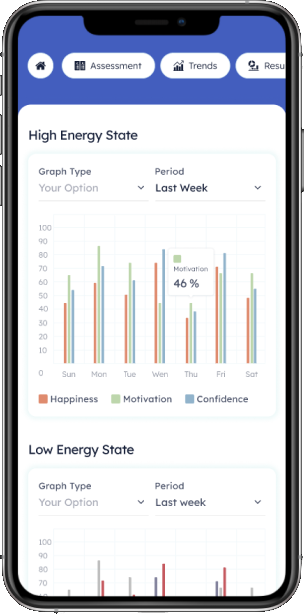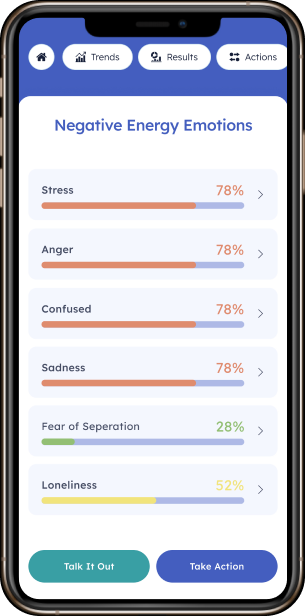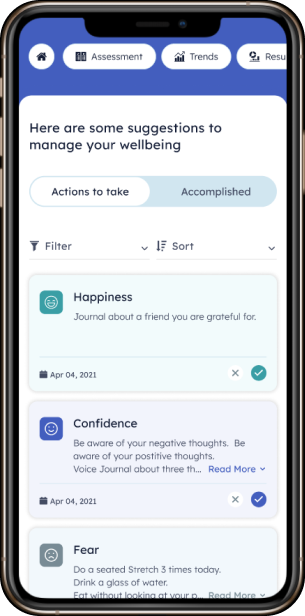No more surveys.
Count out loud. Tiny fluctuations in your voice have much to say about your current emotional state. Vibeonix's voice AI detects and analyzes them.
Get Started



quick, and accessible.
In a clinical study, voice AI is more than twice as accurate as a trained human therapist at detecting elevated levels of emotional distress.
Vibeonix can analyze voice frequencies, amplitudes, and wavelengths. Our algorithm provides real-time insights and data about the user's emotions, EI, self-awareness, management, expression, and empathy.
Get StartedIntelligence in your practice
- Manage your clients. See the instant aggregate data of your group. Drive meaningful conversations with real-time emotional data.
- Voice has a resonance that carries information...time to listen!
- Can you sense your client's anger, yet they are unaware of that present emotion?
- How often have you tried to help your client understand the fear, loneliness, stress, or confusion that keeps them from feeling better?
- Vibeonix is a voice assessment that objectively shows your client's present emotion and translates through their voice frequencies.
- Vibeonix is a conversational app that instantly knows your emotional intelligence score suggesting what you need to shift to achieve your desired state.
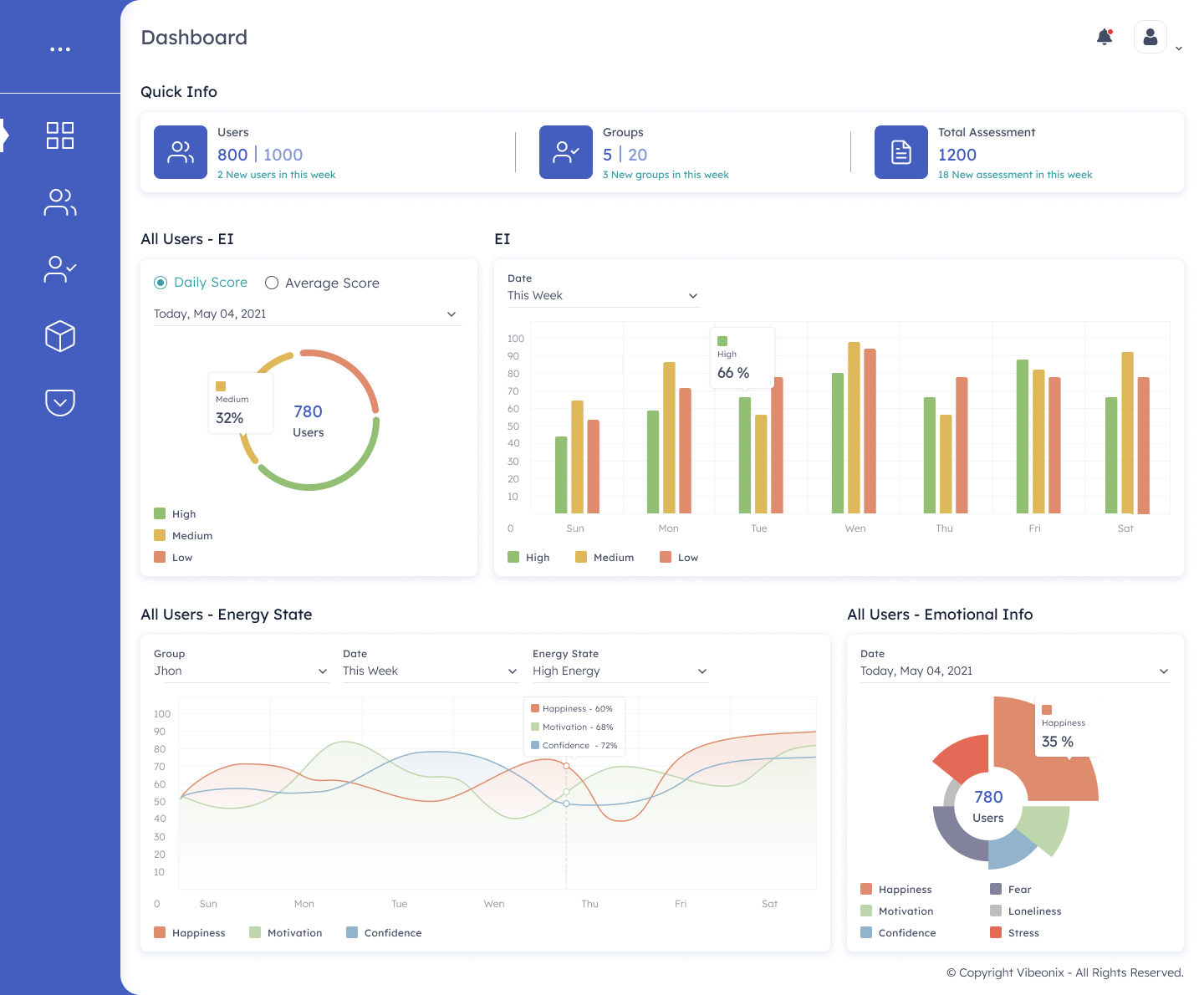
practice if you could...
- Increase engagement from your clients
- Measure your client’s emotional intelligence and emotional states as they progress through treatment
- See real-time aggregate data of how effective your treatment is, sorted by customized groups (such as caseloads)
- Earn a separate revenue stream for clients accessing your system outside of sessions
- Provide clients who are discharging with ongoing support and access to your digital system

Users
Clients
Assessments
It’s how you say it
The vast majority of how we communicate is not in what we say, yet most voice research has focused on natural language processing. This emphasizes what users are saying and not the deeper level of communication behind the words.
For example, if someone told you, “I love you,” but the voice was full of anger, would you feel loved? Most likely not, yet it's the words that traditional voice research has been focusing on.
Here at Vibeonix, we’ve made the harmonic qualities of various emotions and feelings our primary focus. We’ve analyzed clinical data and completed thousands of trials to help our AI understand what’s really going on faster and more accurately than ever before. Let’s hear what your voice really has to say.

